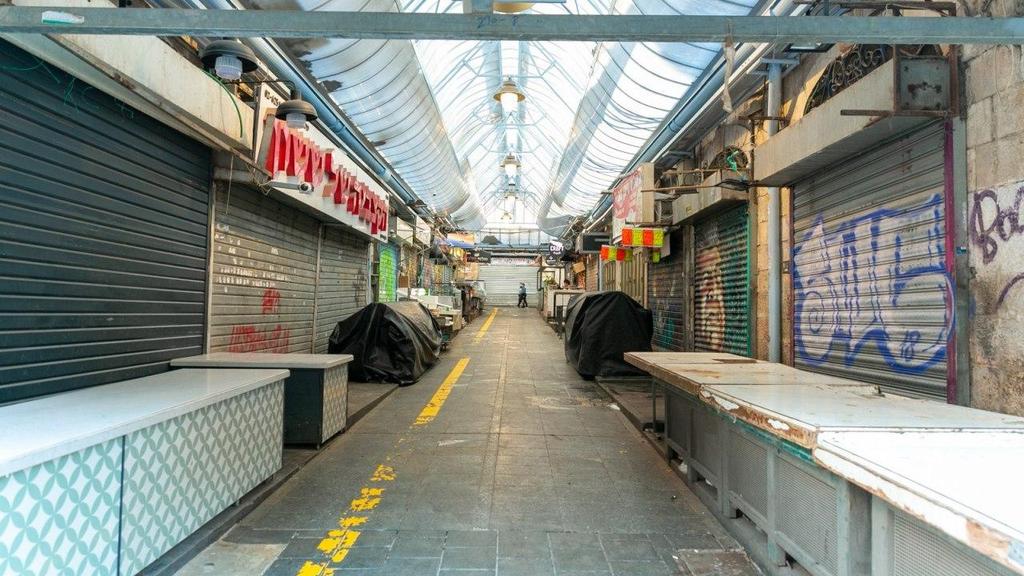Getting your Trinity Audio player ready...
The government was to convene at 8:30 pm Tuesday to approve a series of new, tighter measures in the fight to stop the spread of coronavirus in Israel.
According to a rough draft of the new guidelines, essential workplaces would continue to operate, but all people entering each workplace would have their temperature taken to show that it was no higher than 38 degrees Celsius.
1 View gallery


Mahne Yehuda Market in Jerusalem completely empty due to the new coronavirus guidelines
(Photo: TPS)
All public transportation would cease, excluding taxi cabs that are allowed to carrhy just one passenger. Special transport arrangements would be made for employees in essential jobs.
People would only be allowed to leave their homes to a radius of 100 meters (which was extended from the initial 50-meter radius). Restaurants would only be able sell food via delivery, and self-collection service for take aways would no longer permitted.
Penalties for violating the new directives were set to include six-month jail sentence and NIS 5,000 fines. The rough draft was given to Attorney General Avichai Mandelblit for inspection.
Behind the scenes, a tense battle was waged over the scale of the new directives.
Health Ministry Director General Moshe Bar Siman-Tov had pushed for a full lockdown of all non-essential workplaces, banks and public transportation.
The Finance Ministry vehemently opposed such a move and tried to keep the economy in its current state, even with new lockdown guidelines.
Israel on Tuesday recorded its second and third coronavirus-related deaths - a 67-year-old woman from Bat Yam and an 82-year-old resident of the same Jerusalem nursing home as the 88-year-old Holocaust survivor who succumbed to the disease on Friday.

